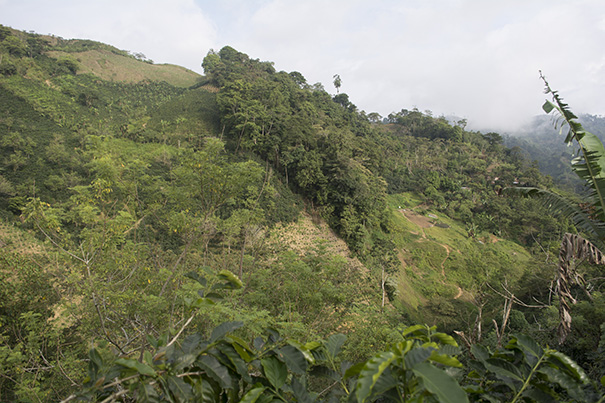CWS has a long history of partnering with local churches and civil society groups in Honduras, the Dominican Republic and Paraguay to eradicate hunger and poverty and promote peace and justice, especially in rural areas where low-income farmers and Afro-Latino and indigenous families struggle to produce enough food to eat.
These are also nations where farmers are being killed or harassed.
Berta Cáceres was an indigenous and environmental leader in Honduras murdered in her home on March 3 after years of advocacy that made Honduran elites uncomfortable.
Pedro P. is a leader in La Maya – a community that is part of the CWS food security program in the Dominican Republic – who is being harassed and threatened after opposing a powerful local figure who tried to occupy part of the community land.
In Paraguay, eleven farmers are on trial as part of the so-called Curuguaty massacre (a very confusing incident in 2012 when 11 landless farmers and six policemen tragically died). The trial has been plagued with mistakes and contradictions, and the proceedings have been widely denounced in Paraguay and around the world. Faith, civic leaders and agricultural organizations are asking the release of all detainees.
In the Paraguayan Chaco region, threats and persecution occur against those who accompany and support indigenous communities that claim their right to land.
How are CWS and partners responding?
CWS and local partners work hard to ensure that farmers and communities are not passive recipients of aid and handouts, but rather are people and groups who can stand up for their basic rights and dignity peacefully and effectively.
In most cases, this happens only after years of training, awareness-raising and accompaniment. With the skills they acquire and inspiration they get from other farmers, communities begin to petition authorities for things like schools and quality education for children, basic health care, water infrastructure, legal titles for their land, improved housing and decent roads.
CWS partners with local organizations to accompany and speak out in favor of those who suffer persecution, violence and injustice in all three of these nations. These local partners are the same ones that CWS supports to train farmers in new agro-ecological farming techniques, promote rainwater harvest and drip-irrigation systems and teach women nutrition, microbusiness and leadership. Their names are Comision de Accion Social Menonita, or CASM, in Honduras; Servicio Social de Iglesias Dominicanas, or SSID, and Grupo de Pastores Interdenominacionales, or GIP, in the Dominican Republic; and Comite de Iglesias, CIPAE, in Paraguay. In all three countries, CWS also partners with Foods Resource Bank, an ecumenical organization CWS is a member of, that links farmers and rural congregations in the U.S. to farmers worldwide.
While in-country support of family agriculture continues, CWS also speaks out in favor of Berta, Pedro and the Curuguaty´s innocents in Paraguay at a national and international level. We do it through letters like the one a group of U.S. faith leaders sent to Paraguay´s president that was co-signed by Roman Catholics, Presbyterians, Disciples of Christ, United Church of Christ, Global Ministries, United Methodists, Episcopalians and many others. The letter was published entirely in Paraguay´s main newspaper. We do it through meetings and communication with U.S. embassy and state department representatives like the open letter sent to Secretary Kerry after Berta Cáceres killing in Honduras.
Some aid organizations limit “eradicating hunger” to promoting vegetable gardens, greenhouses, rainwater harvest methods, micro loans and training. At CWS, we believe that it is all that plus access to justice, peace building and create safe spaces to speak out against impunity.
Nobody can replace Berta Caceres, the killed and jailed in Paraguay or Pedro in the Dominican Republic. However, while you read this article our partners in Central America, the Caribbean and South America´s Gran Chaco region continue accompanying those struggling for their rights.
And CWS is with them.
Martin Coria is the CWS Regional Coordinator for Latin America and the Caribbean.

